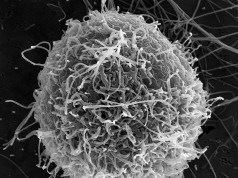Today Christians celebrate the suffering of Christ (that’s what “passion” means; the word was more or less created for this, the suffering of Christ, in 12C France). Why?
Are Christians celebrating suffering in general, or the gift the Son of God supposedly made to them by consenting to suffer too? Or both?
If suffering is celebrated, what for? Because it brings good things, or because it is, per se, a good thing? Or is suffering celebrated because it is central to the human condition? Then, refusing suffering would be to refuse the human condition itself.
A specialist of Buddhism, Philip Short, author of several best seller scholarly books, told me, in connection with explaining the holocaust in Cambodia, that, by spiting pain, Buddhism made people more indifferent to suffering. And thus more tolerant of suffering, and of those, or what, the systems of thoughts and emotions, that inflict it.
Certainly Christians make a show of regretting the suffering of Christ, while revering the fact that, supposedly, he died for us. While Islam is rather gross in comparison, by revering “Jihad” (Holy war or holy war-like effort), Christianism is more subtle: it celebrates those who die for us in horrible suffering, just to obey their “Father”. (Implicit message, same as in Islam, where it is explicit (S 4, v 56): obey Your Lord, the one in the big castle on the hill, as ordained by God.)
In any case, if more than half of the planet is of a mentality inspired by Christianism or Islamism (including yours truly), it’s no doubt because both these religions view suffering as a good thing, sometimes, in their core doctrine. That reflects the human condition better. Whereas Buddhism, once upon a time a state religion in much of Asia, and all of India, was wiped out nearly everywhere (even Japan, where Shintoism was the official state religion).
The problem with Buddhism? It’ s too condemning of pain and suffering. The beast has to be tough, to be the beast.
Beasts manage pain, like anything else, because biological evolution manages everything, or, at least, used to manage everything, until our forebear, Homo Sapiens Neanderthalis, decided to burn coal in France, 73,000 years ago.
Pleasure one craves for, and pain, one avoids. That’s first order. In second order, evolution found out that sometimes one had to crave for pain. Thus pain became pleasure, on a more meta level.
A good example is the totally typical scene of the wildebeest (gnou) being eaten, slowly, by the hyena, guts ballooning out. Why would evolution want that the live dinner be drenched by endorphins, and thus not to suffer too much? Why would Evolution be a good and tender god? Why would evolution care? Well, Evolution cares about the predator being around to eat another wildebeest the following week. Thus Evolution cares about the wildebeest not hurting too much the hyena. Predators are fragile, precious: violence is a delicate behavior to live from, the prey’s cooperation is essential.
If they can, predators avoid risk, and will not even risk killing their prey, if they can have their cake, and eat it.
It’s pretty obvious that efforts bring suffering, but that, often, without efforts, or danger, there would be even more suffering. So one would expect that evolution would have prepared mechanisms that make suffering, and danger, to be perceived, somehow as pleasant, when they are obviously deemed to be important.
What morality to bring out of that? Suffering is not absolute. It’s relative, relative to the causality at hand. And the causality around the corner. Suffering for the good, or a greater cause, can be excellent. That’s one indirect message contained in the Passion of Christ.
And a warning beckons: humanity has a propensity to suffering, and not just as an inclination, but as something necessary for a fully balanced mind. It’s not just that “great” leaders want to hurt others. They do this, in part because they want themselves to hurt.
Could it be that suffering brings happiness? If suffering comes from physical exercise, it certainly brings endorphins! In this case, suffering is directly alleviated by neurohormones. But more generally, a tough condition, especially when it bring despair, completely transforms common existence: instead of being perceived as dreadful, the simplest thing become delectable.
Say you are stuck on a mountain, hanging in a harness, with not even a ledge to rest on, in winter at night with insufficient clothing, no food nor drink (one of my specialties). A return to simple flat ground will be perceived as paradise.
So paradise is easy to muster: just go about, suffering big time, and then return to normality (with luck). This is the attraction of extreme sports. But also war.
Humanity has evolved over several million years. Several millions years of happiness, but also pain and suffering. Can one go without the other? So, when John Lennon screamed that “when you talk about destruction, you can count me out” (in his anti-revolutionary song, “Revolution”), was he unwise and unbalanced?
Proper mental ecology has more important things to worry about, than destruction, pain and suffering, says Evolution.
Certainly, stupidity is something more inhuman, than suffering itself, in which one can easily have all of humanity fall into, during these oligarchic times.
Today a famous novelist also died. Gabriel Garcia Marquez observed that: “Most critics don’t realize that a novel like One Hundred Years of Solitude is a bit of a joke, full of signals to close friends; and so, with some pre-ordained right to pontificate they take on the responsibility of decoding the book and risk making terrible fools of themselves.”
Indeed, although novels are jokes, life is not a joke. Or then it’s a pretty good one. And also a pretty insufferable one. Fiction is a genre much honored. But who needs fiction, when one has reality? Is not fiction reality light?
Accept the pain, it’s the human thing to do.
Patrice Ayme
[Note: The preceding used in passing a Lamarckian (new semantics!) evolutionary mechanism. The evolution of pain mitigation appeared as a “smart” overall ecological system selections: herbivores too hard to eat were deselected by ecological system collapse. So Masochism is evolutionary advantageous from the point of view of entire ecology survival.]






